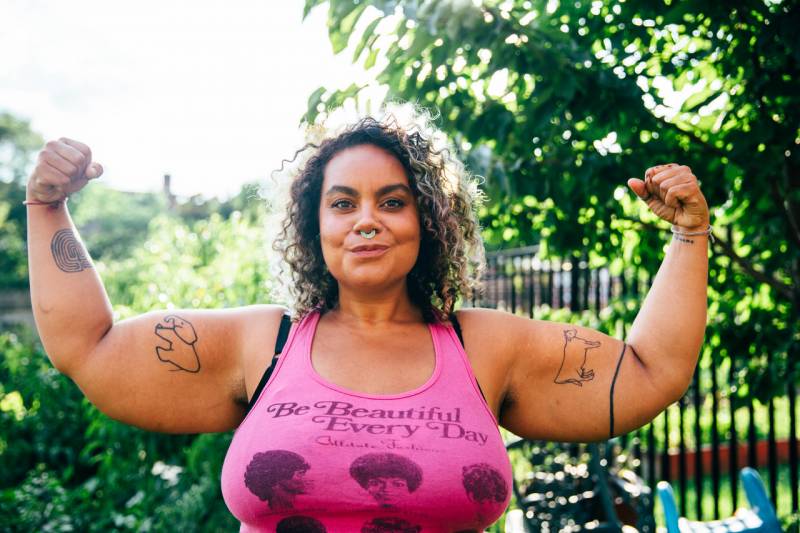With all of the exploitation and abuse in the world, it’s tempting to become numb or cynical. But adrienne maree brown, a thinker and transformative justice practitioner, is charting a different way forward with love as her guiding principle.
Her best-selling 2019 book of essays and interviews, Pleasure Activism, argues that joy is an essential part of any movement for justice—a feeling that’s easy to lose sight of while fighting against racism, sexism, economic oppression and all the other -isms. With Pleasure Activism and her other writing, podcasts, community organizing and events, brown brings artists and activists of different disciplines and generations into conversation, underscoring the idea that collaboration is essential to finding answers to tough societal problems.
With her new book, We Will Not Cancel Us, brown adds much-needed nuance to the “cancel culture” discourse playing out in mainstream media. The book focuses on ways people can lovingly hold each other accountable within social justice movements when someone causes another person harm. brown begins with the tough admission that online call-outs often start with sincere intentions for accountability but attract a hunger for outrage and spectacle—a result which feeds social media algorithms, but doesn’t necessarily serve the survivors of said harm or the larger goals of building stronger communities and movements.
Operating on the idea that no one is disposable, and that abuse is often perpetrated by those who have been abused themselves, brown asks tough-but-sensitive questions that challenge readers to reframe their assumptions about redressing harm.
Ahead of the release of her next title, Holding Change: The Way of Emergent Strategy Facilitation and Mediation (out April 6 via AK Press), brown discussed the abolitionist and transformative justice principles at the core of her work.


